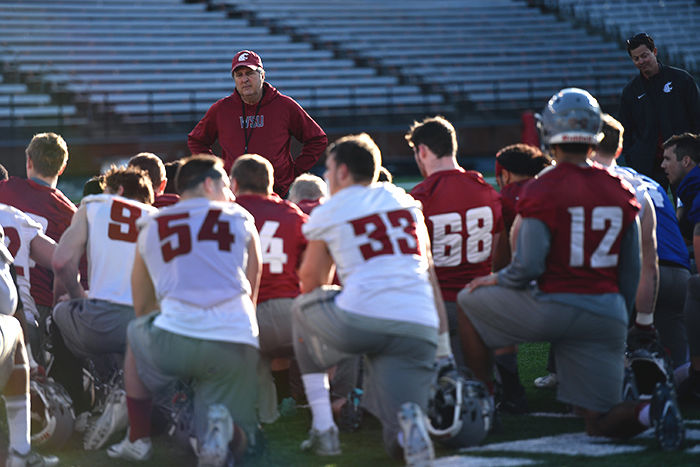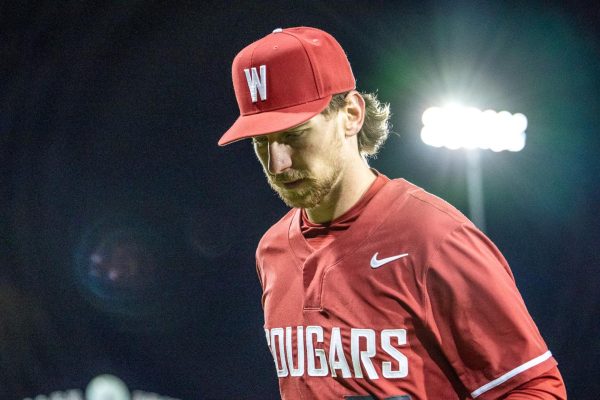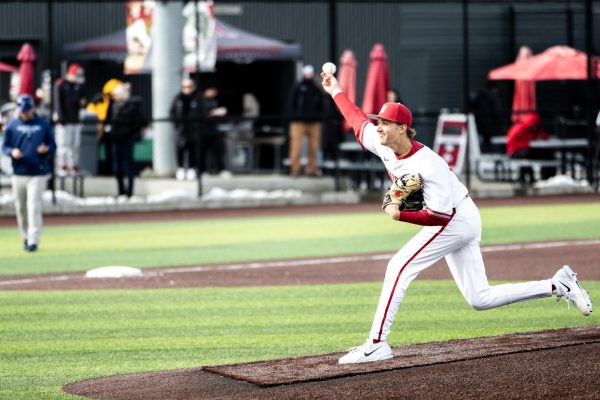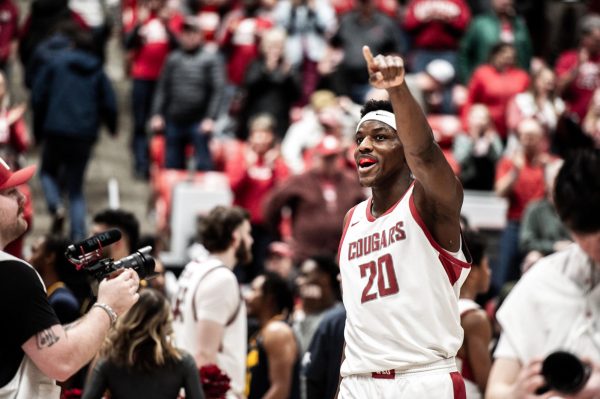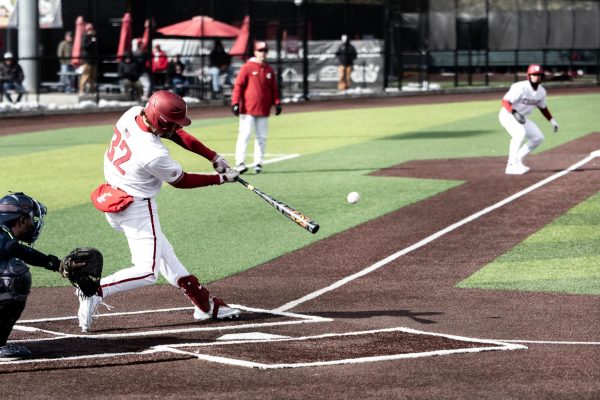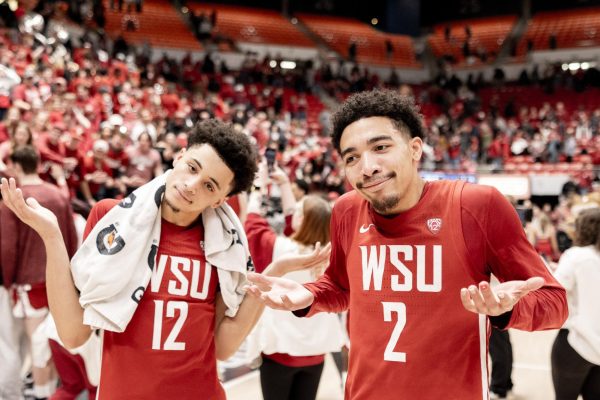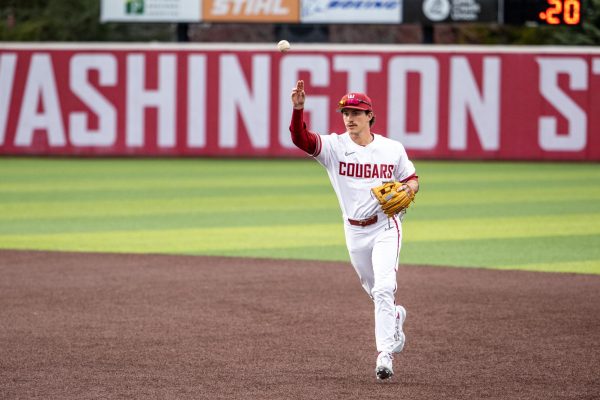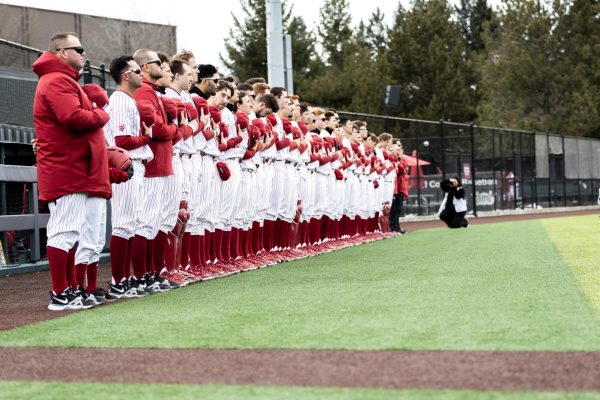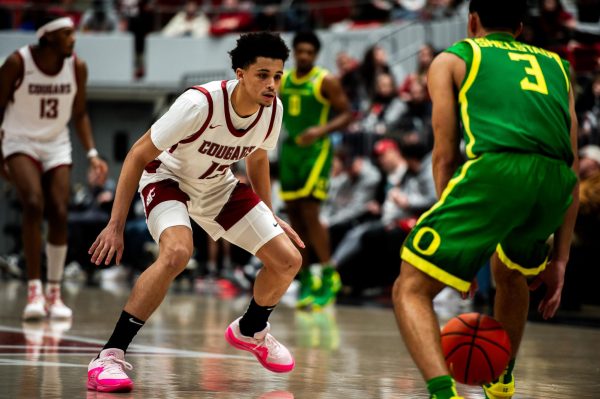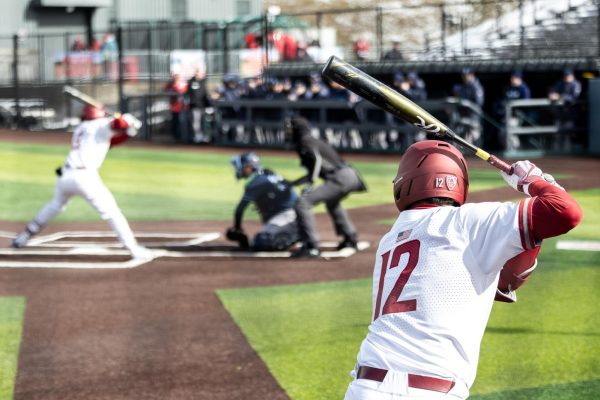From irrelevant to a Pac-12 contender
April 14, 2017
After over a decade of finishing at or near the bottom of the Pac-12, the rise of the WSU football program has been meteoric.
After the hiring of former Head Coach Paul Wulff before the 2008 season, the Cougars found themselves continuing on their downward spiral into irrelevance.
After four seasons under Wulff, the team moved Head Coach Mike Leach to the helm and put WSU on the road from Pac-12 bottom feeder to Pac-12 title contender.
The seed of today’s top-25 Cougar team was planted in mediocrity. Former Head Coach Bill Doba (2003-2007) never had a season with fewer than four wins but only had one season with more than six, and that season can be at least partially attributed to former Head Coach Mike Price’s (1989-2002) legacy.
Doba’s inability to continue the success Price had at WSU left the team stagnant as he and the school “mutually agreed to part ways.” This left WSU’s head coaching position vacant and set the stage for a program-defining hire.
According to an ESPN article from 2008, final candidates for the 2007 WSU football head coaching vacancy included current Kentucky State Head Coach John L. Smith, current Texas A&M Head Coach Kevin Sumlin, and the eventual winner, Wulff, who was the head coach of Eastern Washington University at the time.
Wulff took over the Cougar football program and promptly drove it into the ground, garnering just nine wins in four years with the team, while Sumlin took the University of Houston to new heights, which led to his hire at Texas A&M.
The Cougars saw their worst season in history under Wulff, a (1-11) campaign in 2009, and no upward trends followed that abysmal period. After the 2011 season, Wulff was fired with a .183 winning percentage at WSU.
After such losses condemned the Cougars to return to the cellar for four years, WSU was once again set to redefine the program’s identity.
On Dec. 6, 2011, Cougar football got the fresh start it was hoping for. Athletic Director Bill Moos introduced Mike Leach as WSU’s new head coach to a ballroom full of students in the Compton Union Building.
“The search for a new football coach went fast,” Moos said. “I only talked to one man, and I only wanted one man.”
Moos did not exaggerate when he said the search went fast. In less than a month, WSU hired a coach that would take the program from the bottom of the Pac-12 to a perennial top-25 team.
Although the team saw back-to-back bowl appearances in 2015 and 2016 for the first time since 2002 and 2003, the transformation to a winning program did not happen overnight.
Leach’s first four years at WSU were relatively quiet. In his first season at the helm, the Cougars went (3-9), followed by the WSU’s first bowl appearance in nine years in 2013. Many Cougar fans thought the program was getting back on track, however, WSU would have a disappointing season in 2014, finishing at (3-9).
The slow start to the Leach-era transformed into something bigger in 2015. That year, the Cougars finished the season with nine wins and a bowl victory for the first time since 2003.
In 2016, the Cougars had a season that was arguably as good as, or better, than 2015. While the record dropped to (8-5), the team entered the final week of the regular season with a shot at the Pac-12 title for the first time since 2002.
While Pullman is thought of as a difficult place to recruit to, the kind of turnaround that WSU has seen under Leach is unprecedented. Successful programs have reached similar depths in the past, many may cite the University of Washington’s (0-12) season as one such example, but few programs have been so completely irrelevant for years before suddenly challenging for a conference title.
Leach said work ethic was the first thing he had to fix when he took over as head coach at WSU.
“We had too much of a country club atmosphere,” Leach said. “I care more about whether people are trying hard, and they’re working hard. When that became contagious and developed into an expectation, and then people fed off the energy, that’s when we became a better team.”
With Leach’s culture now in place, the program is in its best position since the early 2000s. This past February, Leach brought in the most highly-touted recruiting class in his tenure at WSU, including signing day surprise Jamire Calvin, a four-star wide receiver from California.
Nearly every facet of the WSU football program has seen an upward trend since Leach’s arrival, and the little laughing stock from the Palouse now finds itself in position to compete for a North Division title, or even a conference title.
“I came back to Washington State to go to the Rose Bowl, and that’s where we’re going to go,” Moos said in December of 2011.


